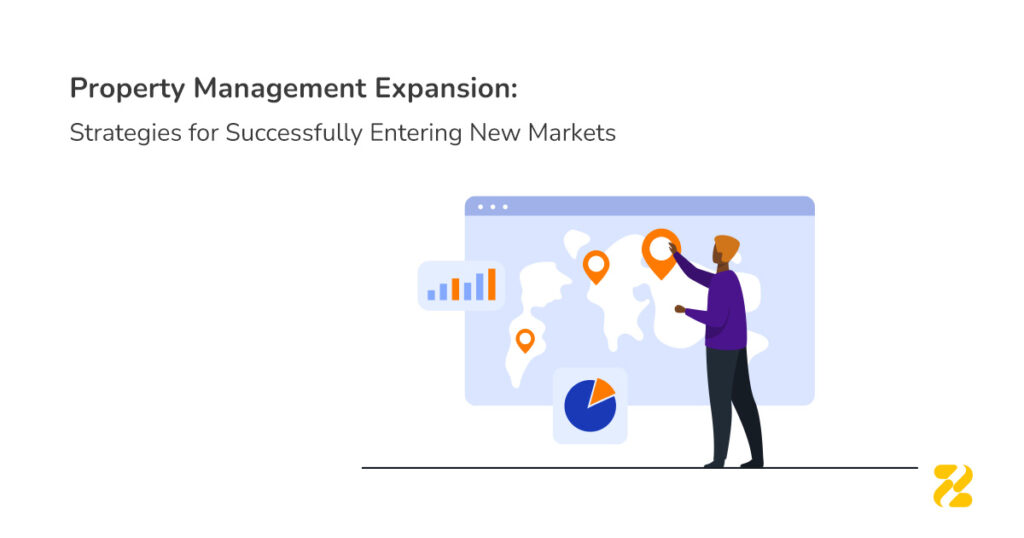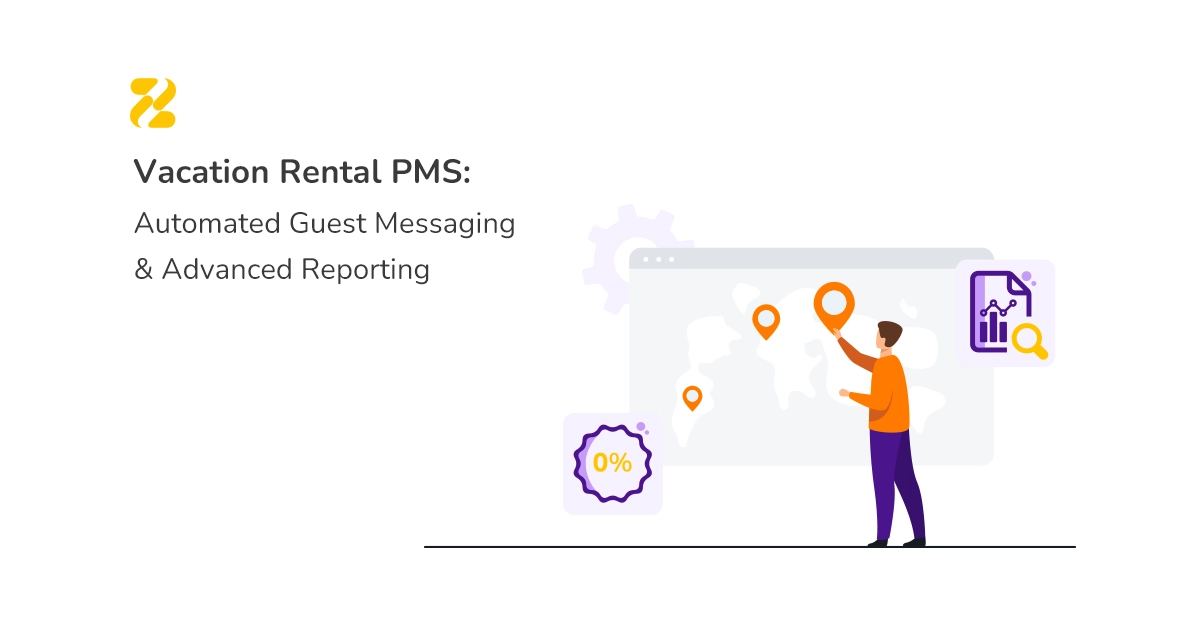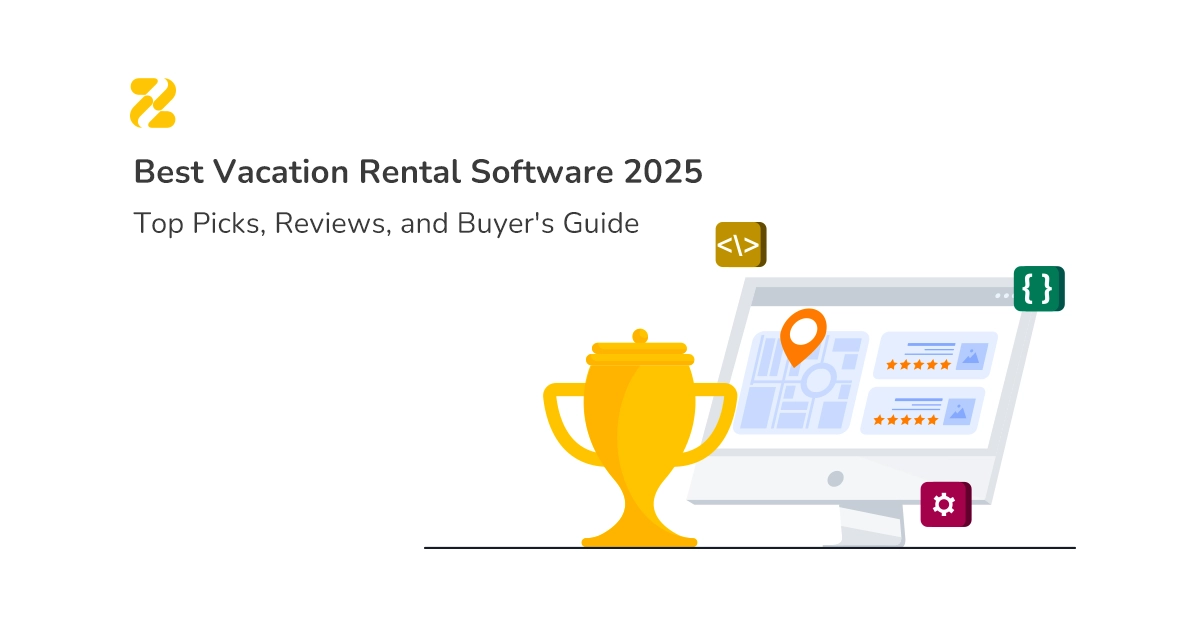Property management expansion into new markets presents a prime growth opportunity, enabling property managers to tap into new revenue streams and diversify their portfolios. Expanding allows managers to reach wider audiences, boost occupancy rates, and reduce the risks of relying on a single location.
This blog post highlights essential strategies for successfully expanding your property management business.
Table of Contents
How Can Property Managers Enter New Markets?
Beyond the well-known benefits, expansion into new markets can bring challenges. Each new market has its own regulations, demand, guest preferences, and operational considerations.
Property managers must navigate local laws, adjust marketing strategies, and manage remote operations effectively. With proper planning, property management expansion can lead to significant growth and increased profitability.

Evaluating Market Potential
Before embarking on a property management expansion, thorough research is key to assessing the potential of a new market. Start by evaluating demand in the area, focusing on tourism, business travel, and long-term rentals. Look for local attractions, events, and industries that might drive guest traffic.
A high tourism rate or strong business presence can lead to consistent bookings. Conversely, regions with a high demand for long-term rentals offer a more stable income stream.
Next, analyse competition by examining existing property managers and rental listings in the area. Assess occupancy rates and guest feedback to understand the competitive landscape. Identifying gaps or unique selling points can help set your properties apart in the market.
Finally, familiarise yourself with local laws and regulations governing short-term rentals. Be aware of any short-term rental restrictions, such as maximum rental durations or occupancy limits. Ensuring compliance with these rules is crucial for a successful property management expansion, helping you avoid legal issues and maximise profitability.
Financial Considerations
When planning a property management expansion, careful budgeting is essential to ensure long-term success. Start by accounting for the costs of acquiring new properties, which may include purchasing the property, renovations, furnishings, and setting up utilities. Additionally, marketing expenses are crucial for attracting guests to new locations. Investing in local SEO, advertising, and platform listings will help increase visibility in a competitive market.
It’s also important to forecast ROI (Return on Investment) and cash flow projections. Analyse how quickly the expansion will pay off based on expected occupancy rates, average nightly rates, and operating expenses. Accurate forecasting will help you set realistic financial goals, ensuring that the new market remains profitable.
Choosing the Right Properties
Selecting the right holiday home is a crucial step in the property management expansion process. When evaluating potential properties, consider several key factors:
Location
Proximity to popular attractions, business districts, or public transport can significantly impact guest demand. Research local trends and areas with high foot traffic, ensuring that your property is easily accessible and appealing to your target audience.
Property Type
The type of property you choose should align with the market demand. For instance, luxury homes might do well in vacation-heavy areas, while apartments or smaller homes may be ideal for business travellers or long-term renters.
Amenities
The amenities offered can set your property apart from competitors. Consider features, such as modern kitchens, high-speed internet, and outdoor spaces. Properties with unique or in-demand amenities tend to attract more bookings, making them more profitable.
Short-Term vs Long-Term Rental Strategies
In some markets, short-term rentals may generate higher income, while long-term rentals provide more stability and lower turnover. Consider your goals and market dynamics when deciding which approach will suit your business model best.
With the right holiday home, property management expansion can lead to sustainable growth and profitability.

Setting Up Automation Tools and AI
Efficient operations are crucial for seamless property management expansion into a new market. By integrating advanced technology, property managers can significantly reduce manual workload while maintaining high operational standards.
Automated Messaging and Guest Communication
Implementing automated messaging tools ensures quick responses to guest inquiries, automated check-in/check-out instructions, and personalised communication. This enhances guest satisfaction while reducing response time.
Booking and Channel Management
A channel manager synchronises calendars across multiple platforms (Airbnb, Vrbo, Booking.com) to prevent double bookings and streamline reservation management.
Dynamic Pricing Optimisation
AI-powered and dynamic pricing tools adjust rates based on market demand, seasonality, and competitor pricing, helping maximise revenue without manual adjustments.
Task and Maintenance Scheduling
Automated workflows can assign cleaning and maintenance tasks based on check-outs, ensuring properties remain in top condition without constant supervision.
AI-Driven Insights and Analytics
Advanced reporting tools provide real-time data on occupancy rates, revenue trends, and guest preferences, allowing property managers to make data-driven decisions.
Marketing for a New Market
Marketing effectively in a new sector is crucial to the success of your property management expansion. Here are key strategies to boost your visibility:
Localising Listings for Target Demographics
Tailor your property listings to suit the preferences and needs of the local market. Highlight features that appeal to the target demographic, whether it’s proximity to business centres, vacation spots, or family-friendly amenities.
SEO and Platform Optimisation
Optimise your listings on booking platforms like Airbnb, Vrbo, and Booking.com to ensure they are visible to the right audience. Use SEO strategies, including relevant keywords for the location, property type, and amenities.
Ensure your listings are complete with high-quality photos, detailed descriptions, and competitive pricing to increase visibility and attract more bookings.
Leveraging Local Partnerships and Influencers
Build relationships with local businesses and influencers to extend your marketing reach. Partner with tour operators, local restaurants, or event organisers to create promotions or exclusive deals for your guests.
Collaborating with local influencers can help you reach a larger, engaged audience who trust their recommendations.
Legal and Compliance Factors
Expanding into a new market requires a strong grasp of legal and compliance factors to prevent costly fines and legal issues. Key considerations include:
Zoning Laws, Permits, and Tax Requirements
Each region has its own zoning laws that dictate where short-term rentals can operate. Before expanding, research the specific requirements in your target market to ensure your properties are in permitted zones. You will also need to obtain any necessary permits or licences, which can vary by location.
Additionally, understand the local tax requirements for short-term rentals, including occupancy taxes, income taxes, and any other applicable fees.
Insurance and Liability Considerations
Insurance is crucial when expanding your property management business into new markets. Ensure your properties have adequate coverage, as platform-provided insurance, like Airbnb’s host protection, may not be enough. Evaluate the need for additional coverage, including liability protection, to safeguard against guest accidents and property damage.

Managing Guest Experience Across Multiple Locations
As you navigate property management expansion, ensuring a consistent and high-quality guest experience across multiple locations is key to long-term success. Here are strategies to maintain excellent service and communication:
Maintaining Consistency in Service and Communication
Guests expect the same high standards at every property, regardless of location. To achieve this during your property management expansion, establish standard operating procedures (SOPs) for guest interactions. This can include booking confirmations, check-in/check-out processes, and guest communication.
By providing clear and professional communication at every touchpoint, you can ensure that your properties deliver consistent service.
Implementing Automated Messaging and Guest Support
Automation tools are essential when expanding your business to multiple locations. Set up automated messaging to handle bookings, check-in instructions, reminders, and post-stay reviews. Automated responses for common guest inquiries can save time and improve the guest experience, ensuring that you can efficiently manage communication.
Handling Guest Issues Remotely
Managing properties in different markets means you may not always be on-site. To address guest issues remotely, set up systems like 24/7 guest support hotlines, instant messaging services, and emergency maintenance protocols.
Having trusted local contacts can help resolve issues quickly and maintain a positive guest experience.
Tracking Performance and Scaling Further
As your property management expansion progresses, it’s essential to continuously track performance and refine your strategies to ensure growth. Here’s how to do it effectively:
Setting KPIs
Key Performance Indicators (KPIs) help measure the success of your business expansion. Focus on metrics like occupancy rates and revenue per listing. Monitoring these KPIs will give you insights into how each property is performing, which areas need improvement, and where you can optimise pricing or marketing strategies.
Learning from Early Mistakes and Adapting Strategies
In the early stages of expansion, mistakes are inevitable. Whether it’s misjudging demand, facing operational hiccups, or not meeting guest expectations, it’s crucial to learn from these challenges.
Use these experiences to adjust your approach, tweak your marketing strategies, or improve guest services. Adaptability is key to overcoming obstacles and refining your business model.
Planning Future Expansions Based on Data-Driven Insights
As you track performance and gather data, use these insights to inform future property management expansions. Identify high-performing markets and replicate successful strategies in similar areas.
Data will guide you in making informed decisions on where to expand next, whether it’s exploring new cities, adding properties in existing locations, or shifting focus to a different type of rental.
Image by pch.vector on Freepik.




